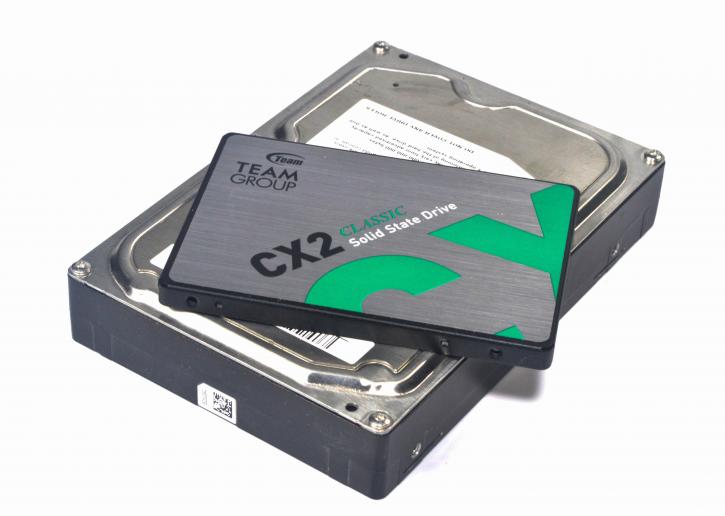Final Words & Conclusion
Final Words & Conclusion
The TeamGroup CX2 is intended as an entry-level SATA SSD and that’s how it works. The performance is just right (but still much faster than HDDs, which it’s intended to replace). The actual (sequential) speed is more or less in line with the SATA standard, so you shouldn’t expect any anomalies here. But kind of usage is not the only one that occurs in a real-life scenario. In more in-depth tests you'll see that it doesn't manage great in some more demanding tasks. It just looks like a drive that was intended rather for the mass storage than the let's say - power usage as in some of the tests the performance is below the average for this kind of SSDs. We wouldn't recommend this SSD to be the one for the OS installed (at least in the other than basic systems). The drive has no DRAM installed, but on the other hand, you'll find an SLC Cache, which helps sustain an adequate level of performance. The NAND used here is the 3D TLC type, so it's the best compromise in today's market, allowing to bring a decent performance and on the other hand good durability. Speaking of which - the TBW for the reviewed 1 TB version is 800 TB, so even if you'd write 100 GB a day, 365 days/year (36.5 TB yearly), that would give 29 years of lifespan. As for the less important things - there is no RGB lighting (but in this budget, we wouldn't expect that), but that’s good because it would make the drive more expensive and probably hotter. Speaking of which, the temps are not listed by the controller (that's a pity).
Performance
Bandwidth and IOPs are on an average level (sometimes even noticeably sub-par), but you still shouldn’t have any real complaints in this department either, considering the budget, and it’s not even that important for regular users, but for some higher-end systems this SSD can be a limiting factor, so we'd advise sticking with using it in the rather basic/lower-end PCs. The drive did satisfactorily in real-life tests in general, but it's more frequently below and not above the average for this kind of drive. The temperatures are unfortunately unknown but as far as we can see - it had no noticeable impact on the drive’s performance.
Conclusion
This is your average 'ok' product. You can buy the 1TB version for around 90 USD, and that’s a nice (not great) offer (it’s about 9 cents per 1 GB). Of course - you need to remember that the price might drop even further because that’s what the current market trend (still) dictates (although halting the production of memory chips in some factory/factories may change that). This drive makes some sense because it’s cheap and it can be used for holding music/movies or to serve as a NAS disk (and for that it should be quite appropriate), so for the wide range of mass storage usage. For your system, we’d rather recommend an NVMe drive (or at least some higher-end SATA product), as they offer better read/write speeds and response time. TeamGroup provides a very standard three-year warranty on the CX2 SSD, but it’s still more than your typical warranty period in many countries. So, summing it all up, the CX2 has nothing that would make it stand out from the crowd, and even the price is not an extraordinary selling-point (although it’s attractive, then again not that much). For just a small price premium, you can find many alternatives on the market which can provide better speeds, like for example the evergreen Crucial MX500. TeamGroup CX2 1 TB would probably much more attractive with the DRAM cache included, but for sure it would increase the price. Yes, it's hard to have it all, but in this case - it's just not enough to convince us as the future is NVMe.
Recommended Downloads
- Anvils Storage Utilities
- AS SSD
- CrystalDiskInfo
- CystalDiskMark
- PC Mark Vantage Storage Tests
- SiSoft Sandra Benchmark suite
- ATTO Disk Benchmark
- Sign up to receive a notification when we publish a new article
- Or go back to Guru3D's front page


